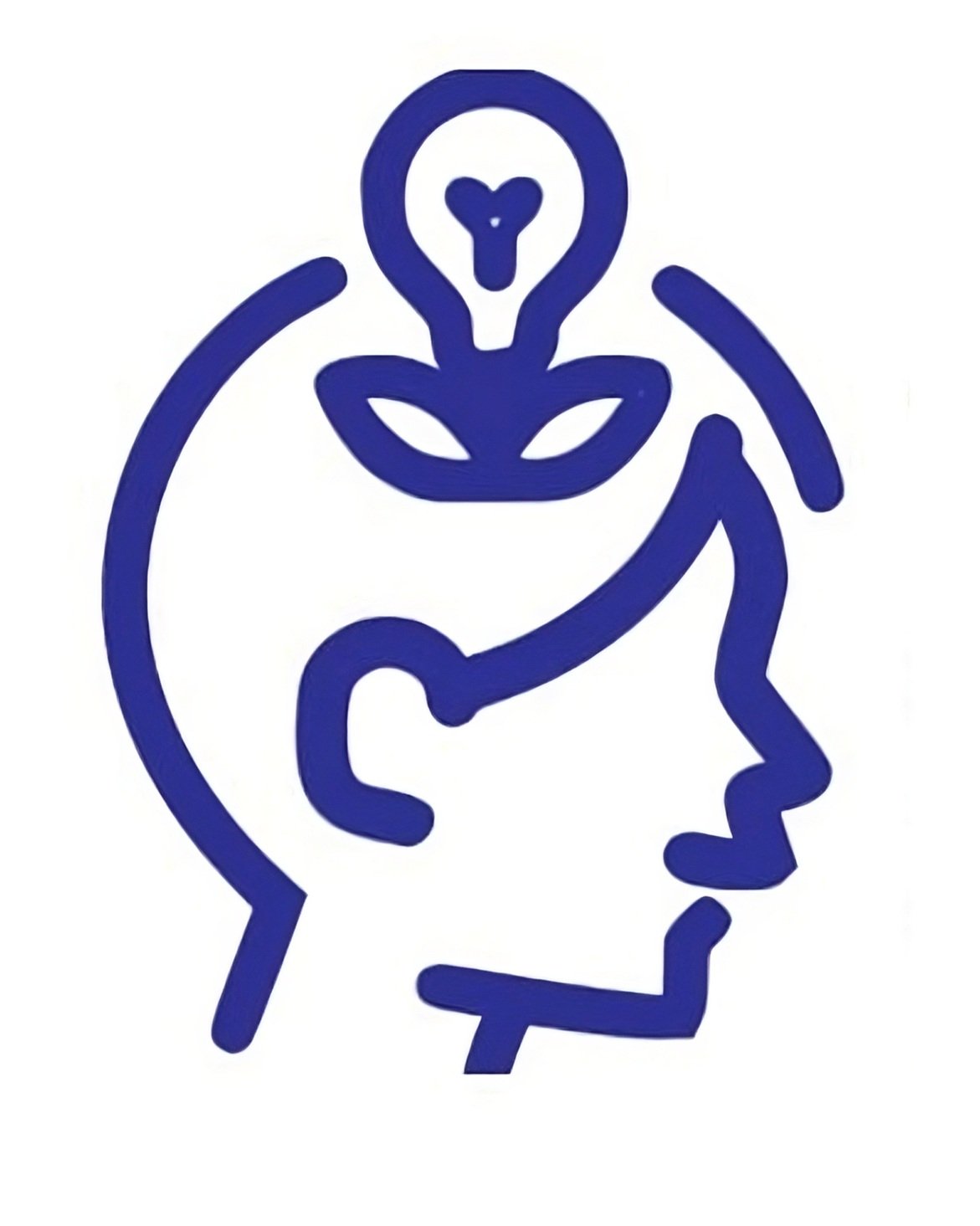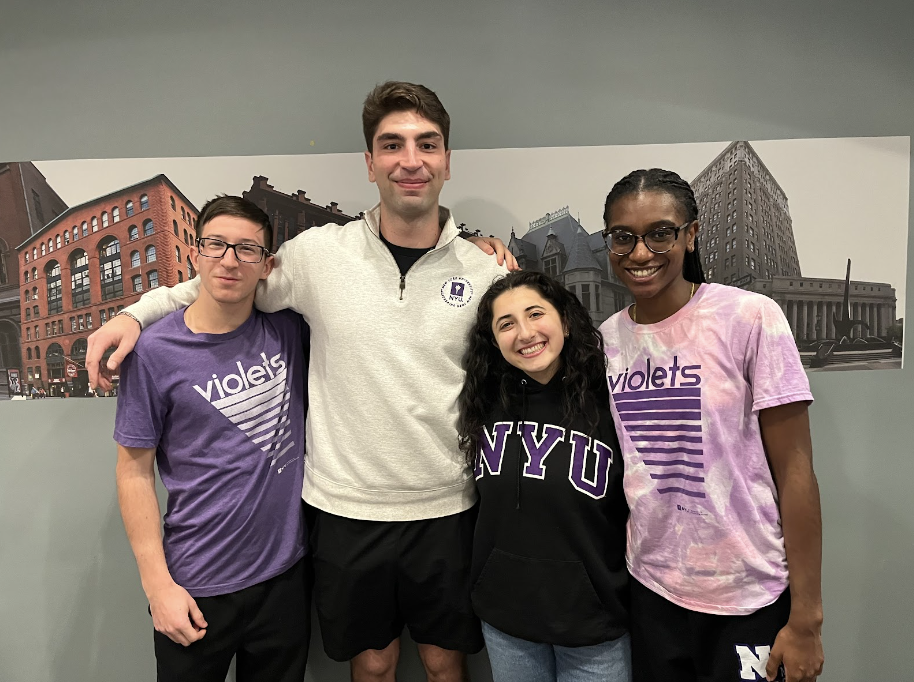College Psychology Tutoring
Get Connected to a Great Psychology Tutor Today
Understanding the human mind is no simple task. As a psychology major, you have to juggle comprehending complex theories in different subfields of psychology, assessing the validity of past research, designing studies, analyzing data, and effectively communicating scientific results. Luckily, our psychology tutors are experts at all these tasks and are ready to provide you with the personalized assistance you need to thrive in your classes.
Who better to help your kid study for tests than scientists that study learning and memory? See below for testimonials from students and parents at schools across the country.
Frequently Asked Questions
Why Tutoring By A College Professor?
Psychology is a difficult topic to learn due to the conceptual nature of the subject. Much of this material may seem subjective, and it is difficult to know if you truly understand the various theories and concepts correctly before being tested on the material. This is where we can help! Our tutors are fantastic at not only explaining the subject material but also making sure that you understand it correctly. We can meet you where you are in your understanding and correct any misconceptions. Our one-on-one individualized tutoring is paramount in order to ensure that you are receiving the best help for you. Please call 614-264-1110 today for a free consultation and sign up now.
Why is using my lecture and online resources not enough?
Large college lectures and online resources both allow for widespread access to the material. However, the trade-off is the lack of individual attention. Additionally, these methods limit the ability of students to ask questions, requiring the learning to be passive. Tutoring By A College Professor allows for active learning and clarity on these nuanced concepts. Our fantastic tutors are well versed in working with students individually and optimizing their learning of the material through various active learning strategies.
How are tutoring sessions conducted?
Tutoring sessions are online on Zoom. You can tutor from the comfort of home or the bustle of a coffee shop. It’s up to you.
How long are most tutoring sessions?
Students typically tutor in 1 hour increments, but sessions can run as long as you need.
What if I need an emergency tutoring session for a test tomorrow?
Don’t hesitate to call us at 614-264-1110. We can have you connected with a tutor today to begin scheduling.
What psychology courses do you help with?
Please see below for a list of some of the psychology courses we’re familiar with. If you do not see your student’s class listed below, we have likely still helped with the course previously and are still highly qualified to help--our tutors are amazing experts in psychology. Please call 614-264-1110 for more information.
**If you do not see your course here, check out our Neuroscience page for more courses we help with—there is significant overlap between the subject areas.
General Psychology:
The Ohio State University: PSYCH-1100(H), PSYCH-5505
University of Michigan: PSYCH 111, PSYCH 112, PSYCH 114
Indiana University: PSY-P 101, PSY-P 102, PSY-P 155
Vanderbilt University: PSY 1200
Clemson University: PSYC 2010, PSYC 2020
University of Alabama: PY 101, PY 105
Emory University: PSYC 110, PSYC 111, PSYC 190
Northwestern University: PSYCH 110
New York University (NYU): PSYCH-UA 1
Yale University: PSYC 110
Harvard University: PSY 1
Duke University: PSY101
Psychology/Neuroscience Research Methods, Statistics, and Analysis:
The Ohio State University: PSYCH-2200, PSYCH-2300, PSYCH-3321, Stats 2480, Stats 2450
University of Michigan: PSYCH 302, PSYCH 303, PSYCH 331
Indiana University: PSY-P 211, PSY-K 300, PSY-P 336, PSY-P 404, PSY-P 421, PSY-P 426, PSY-P 429, PSY-P 435
Vanderbilt University: PSY 2100, PSY 2150
Clemson University: PSYC 2020, PSYC 3090, PSYC 3100, PSYC 4920
University of Alabama: PY 211, PY 355
Emory University: PSYC 200(W), PSYC 230, PSYC 231, PSYC 351
Northwestern University: PSYCH 201, PSYCH 205, PSYCH 345, PSYCH 350, PSYCH 380
New York University (NYU): PSYCH-UA 8, PSYCH-UA 10, PSYCH-UA 11
University of Chicago: PSYC 20200, PSYC 20250, PSYC 21100, PSYC 21260, PSYC 21280
Yale University: PSYC 200, PSYC 230, PSYC 258, PSYC 260, NSCI 240, NSCI 258, NSCI 260
Harvard University: PSY 1900, PSY 1901, PSY 1903, PSY 1904, PSY 1952, PSY 2445, PSY 2464R
Duke University: PSY201, PSY202, PSY204, PSY205
Behavioral Psychology:
The Ohio State University: PSYCH-2301, PSYCH-2303, PSYCH-2311, PSYCH-2500, PSYCH-3313(H) PSYCH-3335, PSYCH-3530, PSYCH-4501, PSYCH-4644
University of Michigan: PSYCH 230, PSYCH 235, PSYCH 337, PSYCH 338, PSYCH 360
Indiana University: PSY-P 319
Vanderbilt University: PSY 3600, PSY 3630
University of Alabama: PY 368, PY 376
Emory University: PSYC 101, PSYC 207, PSYC 303, PSYC 330, PSYC 331, PSYC 350
Northwestern University: PSYCH 215, PSYCH 341, PSYCH 360
New York University (NYU): PSYCH-UA 30
University of Chicago: PSYC 21750, PSYC 23249
Harvard University: PSY 1709
Duke University: PSY106, PSY107, PSY 208, PSY 221, PSY 273, PSY 274
Clinical/Abnormal Psychology:
The Ohio State University: PSYCH-2367.02, PSYCH-3331(H), PSYCH-4305, PSYCH-4320, PSYCH-4532, PSYCH-4540, PSYCH-5250, PSYCH-5270, PSYCH-5612, PSYCH-5613
University of Michigan: PSYCH 270
Indiana University: PSY-P 324, PSY-P 337, PSY-P 437
Vanderbilt University: PSY 3100, PSY 3620, PSY 3625, PSY 3635
Clemson University: PSYC 3830, PSYC 4880
University of Alabama: PY 353, PY 358
Emory University: PSYC 180, PSYC 210, PSYC 211, PSYC 223
Northwestern University: PSYCH 248, PSYCH 303, PSYCH 306, PSYCH 308, PSYCH 367
New York University (NYU): PSYCH-UA 51, PSYCH-UA 81
University of Chicago: PSYC 23660, PSYC 25750
Yale University: PSYC 180, PSYC 312, PSYC 350, PSYC 432
Harvard University: PSY 18, PSY 1021, PSY 1702, PSY 1801, PSY 2460
Duke University: PSY105, PSY 197, PSY207, PSY209, PSY213, PSY 214, PSY 267, PSY 277
Cognitive Psychology:
The Ohio State University: PSYCH-2462, PSYCH-3302, PSYCH-3310(H), PSYCH-3312, PSYCH-3371, PSYCH-3513, PSYCH-3624, PSYCH-4508, PSYCH-4510, PSYCH-5600
University of Michigan: PSYCH 240, PSYCH 341, PSYCH 347, PSYCH 348, PSYCH 349
Indiana University: PSY-P 329, PSY-P 330, PSY-P 335
Vanderbilt University: PSY 3120, PSY 3730, PSY 3750, PSY 3775, PSY 3780
Clemson University: PSYC 3330, PSYC 3340, PSYC 4220, PSYC 4230
University of Alabama: PY 313, PY 361, PY 470
Emory University: PSYC 110, PSYC 209, PSYC 215, PSYC 220, PSYC 250, PSYC 302, PSYC 309, PSYC 310, PSYC 314, PSYC 316(W), PSYC 317, PSYC 324, PSYC 383
Northwestern University: PSYCH 228, PSYCH 324, PSYCH 328, PSYCH 330, PSYCH 333, PSYCH 336, PSYCH 370, PSYCH 372, PSYCH 373, PSYCH 378
New York University (NYU): PSYCH-UA 22, PSYCH-UA 25, PSYCH-UA 27, PSYCH-UA 29, PSYCH-UA 46, PSYCH-UA 48, PSYCH-UA 56
University of Chicago: PSYC 20400, PSYC 20700, PSYC 21109, PSYC 23120, PSYC 23200, PSYC 23720, PSYC 23820
Yale University: PSYC 116, PSYC 128, PSYC 130, PSYC 145, PSYC 179, PSYC 304, PSYC 317
Harvard University: PSY 1322, PSY 1406
Duke University: PSY102, PSY 113, PSY 141, PSY 256, PSY 258
Developmental Psychology:
The Ohio State University: PSYCH-2350, PSYCH-3340, PSYCH-3550, PSYCH-3551, PSYCH-4552, PSYCH-4554, PSYCH-5471, PSYCH-5681, PSYCH-5684
University of Michigan: PSYCH 250, PSYCH 352, PSYCH 358
Indiana University: PSY-P 315
Vanderbilt University: PSY-PC 1250
Clemson University: PSYC 3400
University of Alabama: PY 352, PY 365, PY 461
Emory University: PSYC 205, PSYC 311, PSYC 313, PSYC 318
Northwestern University: PSYCH 244, PSYCH 350
New York University (NYU): PSYCH-UA 34, PSYCH-UA 40, PSYCH-UA 42, PSYCH-UA 59
University of Chicago: PSYC 20500, PSYC 20850, PSYC 22555, PSYC 22580, PSYC 22950, PSYC 25500, PSYC 25620
Yale University: PSYC 125, PSYC 127, PSYC 140, PSYC 426
Harvard University: PSY 16, PSY 1612, PSY 1615, PSY 2152
Duke University: PSY103, PSY 239
Gender & Sexualtiy Psychology:
The Ohio State University: PSYCH-2333, PSYCH-2350, PSYCH-3340, PSYCH-3550, PSYCH-3551, PSYCH-4552, PSYCH-4554, PSYCH-5471, PSYCH-5681, PSYCH-5684
Vanderbilt University: PSY 3705
University of Alabama: PY 371
Emory University: PSYC 221, PSYC 305
Northwestern University: PSYCH 348
Yale University: PSYC 342
Duke University: PSY195, PSY 220, PSY 226
Psychobiology:
The Ohio State University: PSYCH-5600
Indiana University: PSY-P 351
Clemson University: PSYC 3240, PSYC 3250, PSYC 4560, PSYC 4800
University of Alabama: PY 413
Emory University: PSYC 110, PSYC 321, PSYC 322, PSYC 352
Northwestern University: PSYCH 221
University of Chicago: PSYC 20300
Yale University: PSYC 160
Harvard University: PSY 1202, PSY 1401
Duke University: PSY 375
Social Psychology:
The Ohio State University: PSYCH-1375, PSYCH-2311, PSYCH-2367.01, PSYCH-3325, PSYCH-3375, PSYCH-4630, PSYCH-4520
University of Michigan: PSYCH 280, PSY-P 304, PSYCH 339
Vanderbilt University: PSY 3110
Clemson University: PSYC 3520
University of Alabama: PY 372
Emory University: PSYC 212, PSYC 214, PSYC 315, PSYC 325
Northwestern University: PSYCH 213, PSYCH 317, PSYCH 364, PSYCH 383, PSYCH 387
New York University (NYU): PSYCH-UA 32,PSYCH-UA 35, PSYCH-UA 38, PSYCH-UA 39, PSYCH-UA 53, PSYCH-UA 62, PSYCH-UA 75
University of Chicago: PSYC 20600, PSYC 21150, PSYC 21690, PSYC 22220, PSYC 22350, PSYC 23000, PSYC 25120, PSYC 25280, PSYC 25950, PSYC 26750
Yale University: PSYC 115, PSYC 150, PSYC 182, PSYC 303, PSYC 305, PSYC 310, PSYC 425, PSYC 430, PSYC 441
Harvard University: PSY 1325, PSY 1522, PSY 1812, PSY 2430
Duke University: PSY104, PSY 223, PSY 225, PSY 230
Testimonials
See what Psychology students and their parents say about their experience with Tutoring By A College Professor. To search for testimonials by school, go to our Testimonials section at the top:
Here are some tips from our Psychology experts:
Look at the material through a certain lens: Psychology is splintered into many different subfields. Most of these different fields view similar concepts through different lenses, or from a different perspective. When studying for psychology courses, make sure to keep in mind what perspective your course is coming from in order to focus on the correct emphasis and understand the material from the correct view. See below for a few subfield examples.
Make associations: Psychology concepts rarely stand on their own. Try to make some word clouds or association centered study tools for yourself! This also gives an added benefit: the more you work with the material, the better you will know it.
Real life examples: Psychology is the study of the human mind and behaviors, so it is meant to be applied to your real life. These connections will allow you to remember the material better, separate similar concepts, and make more sense of them! For example, in your abnormal psychology course, try to identify fictional characters that may have certain mental illnesses (ex. Michael Scott of The Office with histrionic personality disorder, Riley from Inside Out facing depression, etc.) to better contextualize your new knowledge.
Talk about the material: Psychology is meant to be studied differently than other courses. Explaining the material to others will help show you if you really know the material inside and out and can apply it without simply restating your lecture slides. Try explaining your psychology topics to your friends, classmates, relatives, or tutor!
Be present during lecture: This tip goes for ALL courses! One of the most underused strategies for learning college material is being present during lectures. Challenge yourself to put away your phone, minimize distractions, take notes, and review the material shortly after lecture so find any places of confusion or what you would like to focus your studying on!
Utilize many different resources: Having a tutor is just one tool in your toolbox! Utilize your lecture, office hours, tutor, as well as common online resources.
CrashCourse for AP Psychology by Hank Green
Introduction to Psychology/General Psychology:
General psychology is the most widespread view of psychology. It focuses on the most important and foundational concepts, theories, and research that is applied to how the human mind functions and how it influences human behavior, thoughts, and emotions.
Psychology Research Methods, Statistics, and Analysis:
Psychology research methods, statistics, and analysis all focus on how psychology research is performed. You will learn the most common types of psychological experiment types, as well as how to analyze and interpret the results. This focus may be broken up into a few different courses depending on your university.
Behavioral Psychology:
Behavioral psychology is a field that studies more in-depth views on how the human mind influences and drives behavior, as well as how we can predict and even modify human behavior. These courses may focus on topics such as behavioral conditioning or cognitive behavioral therapy.
Clinical/Abnormal Psychology:
Clinical/Abnormal Psychology is the study of abnormal human behavior, often focusing on how these behaviors manifest as mental illness. Within this course, you will learn about mental illness symptoms, diagnosis, causes, and treatments.
Cognitive Psychology:
Cognitive psychology is the branch of psychology that focuses on how the human mind forms thoughts, learns, and stores memories. These courses may focus on perception, decision making, memory, or attention.
Developmental Psychology:
Developmental psychology is the study of child and adolescent development with a focus on how thoughts, behaviors, and perceptions change as infants and children grow up. Common topics may include how parenting styles and early childhood experiences affect a child’s mind, how language and motor skills develop, and how different stages are viewed by various psychologists such as Erik Erikson and Sigmund Freud. Many other majors include requirements for this course, including Education, as teachers need to understand adolescent development to work with and for their students.
Gender and Sexuality Psychology:
Gender and Sexuality psychology is the subfield of psychology that focuses on gender and sexuality, viewing its behavioral, cultural, cognitive, and social impacts.
Psychobiology:
Psychobiology is the subfield of psychology that complements neuroscience. These courses focus on the relationship between psychological processes and their underlying physiologic mechanisms. Commonly this course will begin investigating neuroanatomy and connecting which parts of the brain are utilized during certain behaviors, cognitions, or emotions.
Social Psychology:
Social psychology is the subfield of psychology that studies how individuals fit into society, social interactions, social roles, and group behavior.









